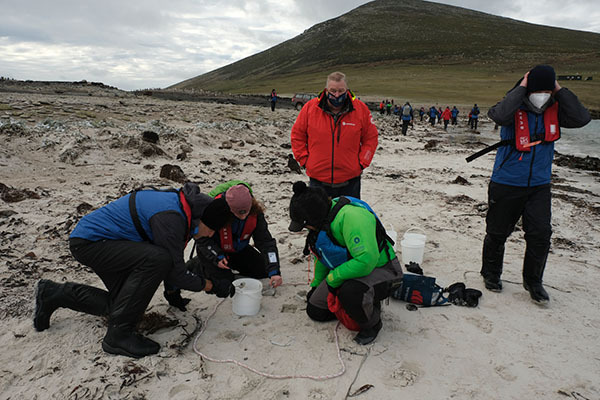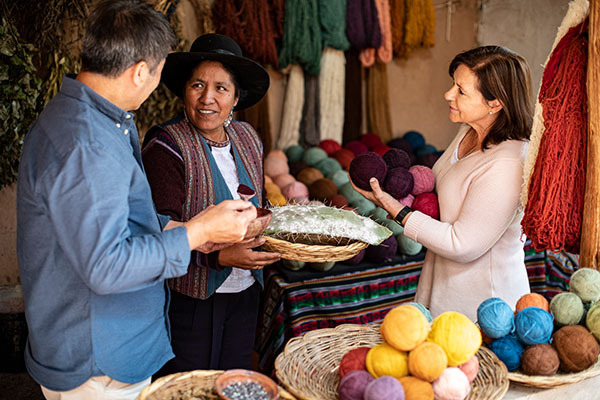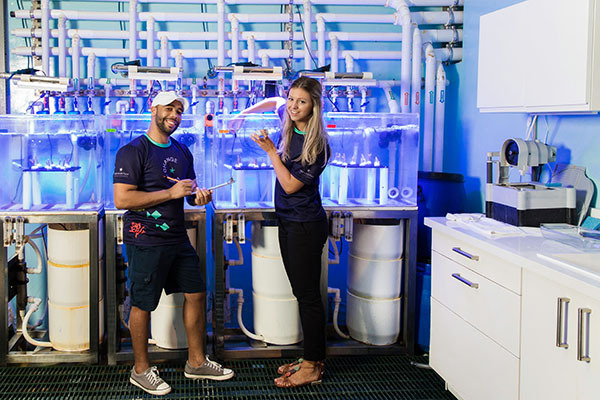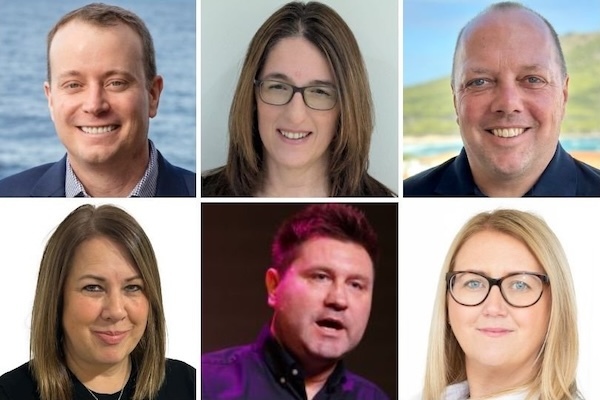How embracing responsible travel could transform your agency
TTG’s Sustainable Travel Heroes and agent Ambassadors explain how promoting and selling sustainable travel can boost your sales and business.

Want to get business booming? Tap into sustainable travel. Agents and suppliers in the know enthuse about the power of responsible tourism, stressing it’s not only a better form of travel to sell, but has the ability to attract new clients, encourage repeat bookings and boost your bottom line.
Increased revenue wasn’t the reason Travel Counsellor Marie Rowe applied for TTG’s Sustainable Travel Ambassadors agent training scheme last year, but it’s been a bonus result of learning more about responsible travel, as her annual sales for 2023 were up 65% year-on-year. While numerous factors contributed to the increase, she says: “A substantial part of the financial gain has come from focusing on sustainable travel messaging.”
Rowe believes the content she shared about responsible travel attracted new clients who would have previously “gone DIY”. She explains: “This is largely because it’s much easier to build tailor-made travel with great experiences when you use a travel expert, but also, people are attracted to companies who are shouting about their eco-credentials, and there’s often a sense of wanting to support people doing good things.”
CONSCIOUS SPENDING
Michael Heath, chief executive at AE Expeditions (part of Aurora Expeditions), agrees, explaining: “We know that consumers are increasingly conscious about spending money with companies they know are operating ethically and sustainably, and this is also true for who they choose to travel with.”
In January, AE Expeditions became a B Corp Certified business, and Heath explains: “This certification attests to the fact that our business operates as ethically, transparently and sustainably as possible, and that this extends to all areas of the company.”

Joanna Reeve, head of business development and partnerships EMEA at Intrepid, also a B Corp, says implementing sustainable and responsible travel through all parts of the business has had “many benefits” for the company.
“It has cemented us as a leading responsible travel operator in the industry, which helps us to attract new customers and partnerships,” she explains. “As more people seek out sustainable travel, they know they can trust Intrepid. This helps to grow our business and is financially beneficial too. It shows that profit and purpose are not conflicting pursuits, and is proof that when pursued together they can be among the most resilient business strategies an organisation can take.”
ENGAGING STORIES
But what is it about responsible travel that captures travellers’ interest? Rowe says content about her sustainable travel expert journey gets “way more traction than a post with a picture of a paradise island and a great Caribbean offer.”
Recalling the sustainability-themed content she shared in 2023, she explains: “People were interested in seeing what I was doing, what I was learning, and where I was going – this content got a lot of engagement. It built trust and credibility, knowing that my business was addressing the things that holidaymakers are becoming increasingly concerned about.”
Like Rowe, many of the Ambassadors successfully used messaging around sustainability to underpin targeted social media strategies, including Annika Nickson, an independent travel consultant at Nickson Travel, part of Not Just Travel. She creates “sustainability Sunday” posts on Facebook, Instagram and LinkedIn each week, with the aim of inspiring and educating travellers with interesting content.
She notes: “Other agents often say their clients don’t ask about responsible travel. But that’s because travellers who are conscious of sustainable travel will actively go out and look for agents that are promoting themselves as experts in that field.”

As well as generating new business and cementing an agent’s authority, booking responsible travel can also drive more repeat business, according to Rowe. She says: “The holidays I would have booked anyway have been better for the planet, and those experiences tend to be more enjoyable, which then leads to repeat business.”
There is a huge untapped opportunity for other agents to promote responsible travel to their clients. In January, TTG quizzed agent readers to discover their attitudes towards selling sustainable travel. The research revealed that while 67% of agents are occasionally or frequently including sustainable travel messages in their marketing content, 27% never include them.
There are a host of ways to share tips with clients, and customers want to receive this information, according to Kelly Jackson, managing director of TTC Tour Brands (made up of Contiki, Costsaver, Trafalgar, Insight Vacations and Luxury Gold). She says one of the most frequent questions her team is asked is how to be a more responsible traveller. To help, TTC released its 2024 Make Travel Matter Checklist, which travellers, partners and agents can use and share. “It gives them these accessible sustainable travel tips and makes them aware of where they are spending and investing their travel funds,” Jackson explains. “Being seen as a sustainable brand is not just about perception; it is about real, measurable impacts.”
Iberostar proudly showcases its sustainability journey through its Wave of Change movement, and many of the projects are witnessed by clients during their holiday, such as seeing the recycling teams at work.
But as well as engaging clients, business development director Aishling McLoughlin says the Wave of Change programme also has “real business benefits” for Iberostar, as it lowers risk and creates efficiencies. She cites the example of the seven coral nurseries Iberostar supports, which are working to find climate-resistant species. She explains: “If we can enhance the reefs near our hotels, they are more robust for hurricanes, the sea has richer diversity and our guests can learn about the work being done and swim in beautiful water. That has benefits for everyone – including nature.”
For more information and ideas, visit the TTG Sustainable Travel Heroes Hub
















